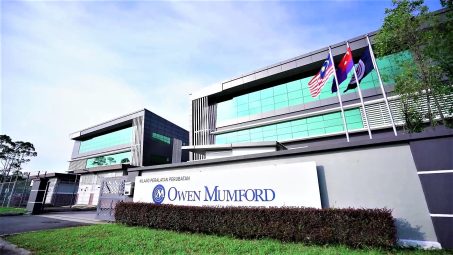
From waste to (social) wealth
Government figures estimate that five million tonnes of plastic are used each year in the UK, half of this is packaging, and just 45% of it is recycled.
Government figures estimate that five million tonnes of plastic are used each year in the UK, half of this is packaging, and just 45% of it is recycled. The impact of human activity on the environment will be the topic of the next decade and businesses will have to consider how they will adapt to neutralise their environmental impact.
Mark Carney, Special Envoy to the UN on Climate Change and Finance, warns “Companies and industries that are not moving towards zero-carbon emissions will be punished by investors and go bankrupt”. Businesses already use ‘social value’ reporting to push environmental narratives which are tied to measurable actions and results. However, it’s one thing to have the metrics and targets in place, but how will companies deliver the change that is needed?
How do you take out waste?
One approach to business improvement is ‘Lean’. Lean originated from Japanese manufacturing and focuses on eliminating ‘waste’ from business activities, serving to improve Safety, Quality, Cost or Lead time of processes. These wastes are traditionally the activities carried out by people, that consume resources (adding cost) and create no significant value for the customer. Typically, eight wastes are sought out for removal, these are: Transportation, Inventory, Motion, Waiting, Over-production, Over-processing, Defects & untapped human Skills.
The Unipart Group, an Oxfordshire headquartered company, has developed Lean thinking into a core part of its philosophy, ‘the Unipart Way’. Their approach is to empower and engage employees to drive continuous improvement across operations and customer supply chains. Unipart’s consultancy business successfully uses this philosophy to help organisations across the world achieve change via ‘Lean transformation’ activities. This is no mean feat – traditionally a significant proportion of change programmes do not sustain their results for long. To overcome this, Unipart rely on a toolkit of techniques.
The first of these techniques is to implement ‘Standard Work’ to ensure that all types of operations run in a safe, repeatable, reliable and capable way. This includes identifying and removing waste across all operations from supplier to customer (the ‘Value Stream’). Producing the Value Stream Map (VSM) is followed by the use of a combination of tools that closely examine processes to find bottlenecks and inefficiency and remove them – stripping out waste and potentially saving significant sums.
A greener Lean
The environment has been weakly represented in Lean thinking, focusing more on the monetary cost of raw materials and efficiency of processes. Many organisations deploy Passive Environmental strategies through Dilute & Disperse or Reactive Environmental; ‘After the fact’ approaches where the energy and waste footprint may be off-set elsewhere or shipped overseas. With physical waste and resources consumed by organisations causing real environmental harm, it’s undoubtedly time for the full ‘cost’ of these activities to be considered. Legislation is also not far behind. The revised Environment Bill will seek to make firms producing packaging to take more responsibility for the materials they put on the market.
Green wastes: the Environmental Value Stream Map
The future will require more preventive environmental approaches (reduce, reuse, recycle) and a new, greener Environmental Value Stream Mapping tool (EVSM) could help. Like the VSM, the EVSM can be applied to processes, products, and services. An EVSM model would also identify improvements to reduce the volume and toxicity of waste and materials, conserve and recover resources and energy, and avoid burning or burying them.
A new EVSM model would identify seven new ‘Green Wastes’ (Figure 1): Energy, water, non-sustainable raw materials, non-recyclable rubbish, fossil fuel consumption, emissions and biodiversity. The aim of green waste identification is to extract the maximum practical benefits from products and to generate the minimum amount of waste. An EVSM will illustrate not just the time and cost required for a process but also the daily environmental footprint. Industry 4.0 technologies; the Internet of Things, big data analytics, and cyber–physical systems will bring further advantages. Real time data collection, analysis and monitoring of the environmental efficiency of processes in real time will make it easy for businesses to forecast compliance with regulation and their own targets.
In practice
Whilst there is still a way to go, change is happening. Unipart Logistics made a commitment to the elimination of single use plastics in their supply chain by the end of 2020. Several teams have worked closely with customers through 2019, making use of Lean tools such as the Value Stream Map, to remove plastic wherever possible. In one facility the reverse logistics team eliminated 95.5% of all single use plastics consumed in the repair of returned consumer electronics. As part of Sky’s Ocean Rescue initiative in 2019, the use of new innovative re-usable packaging has seen Unipart Logistics and Sky together removing more than 120 tonnes of single use plastic from their operations.
So that just leaves one question – what environmental targets is your organisation setting in 2020, and how will they be delivered?
More in Manufacturing

Intertronics: Driving Innovation in Adhesives and Assembly Solutions
For over four decades, Intertronics has been at the forefront of providing high-performance adhesives, coatings, sealants, and application equipment to industries that demand precision and reliability. From electronics and medical devices to automotive and aerospace, Intertronics’ expertise ensures that manufacturers can optimise their bonding and assembly processes with cutting-edge solutions.

Unipart named CCS supplier
Unipart has been named as a supplier on Crown Commercial Service’s (CCS) Logistics, Warehousing and Supply Chain Solutions (RM6329) framework agreement.

Owen Mumford: 70 Years of Innovation in Healthcare
Owen Mumford has been at the forefront of medical device innovation for over 70 years, pioneering solutions that enhance patient care and improve healthcare outcomes worldwide. Established in 1952 by Ivan Owen and John Mumford, the company has grown into a global leader in medical device design and manufacturing, with a commitment to quality, sustainability, and patient-centred innovation.
From this author

Unipart named CCS supplier
Unipart has been named as a supplier on Crown Commercial Service’s (CCS) Logistics, Warehousing and Supply Chain Solutions (RM6329) framework agreement.

Unipart partners GBUK
Unipart has formed a strategic partnership with GBUK

Unipart launches in Vietnam
Unipart, the supply chain performance improvement partner, has launched operations in Vietnam.

